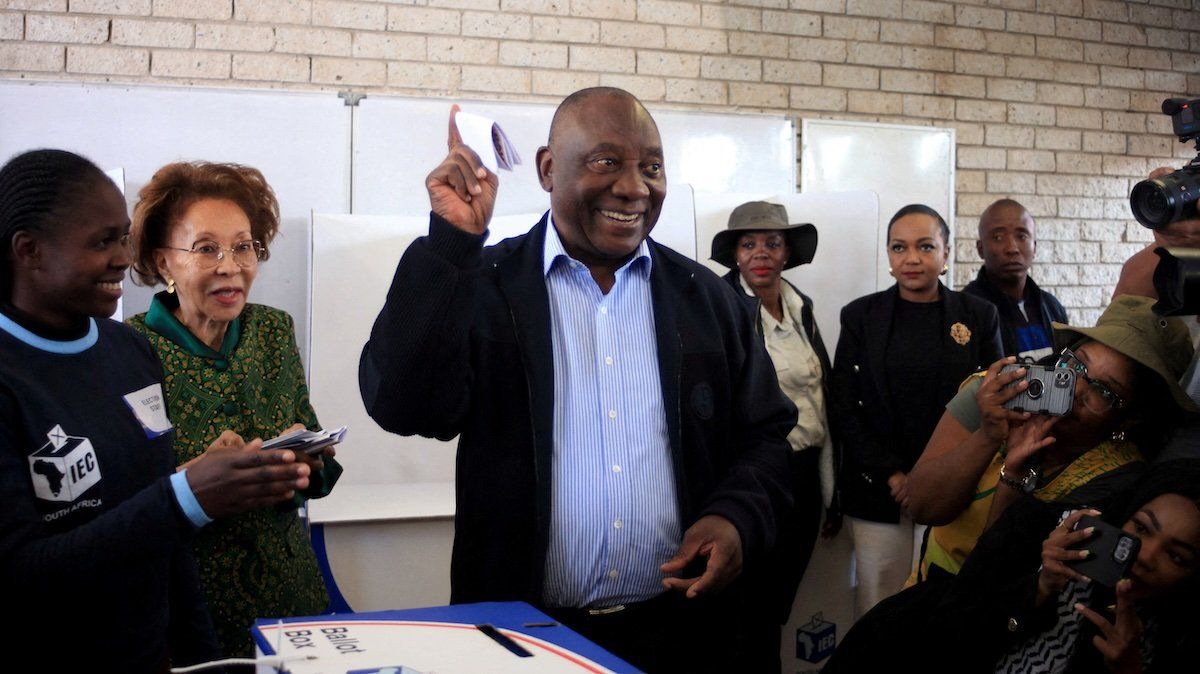As the votes are being counted in South Africa’s most competitive election since the African National Congress came to power 30 years ago, the ANC is currently leading with 44% of the vote followed by the Democratic Alliance with 25%.
If the ANC fails to capture a clear majority but can scrape out at least 45% of the vote, it will likely be able to reinstate current President Cyril Ramaphosa and only need to make minimal policy compromises.
“If the ANC come in just under a majority, they are likely to approach smaller, ideologically aligned parties … to put together a stable coalition where they would be the dominant party,” says Eurasia Group’s senior Africa analyst, Ziyanda Stuurman.
Meanwhile, former President Jacob Zuma’s uMkhonto weSizwe Party — which has received just 14% of the vote — is calling for an opposition coalition to be formed to rival the ANC. But the second- and the third-largest opposition parties aren’t interested in joining the ranks.
It’s still too soon to call. “We are still early in the counting process, with only 34% of the country’s voting districts reporting results,” Stuurman cautioned. “The two largest provinces in the country have reported less than 30% of their results, and many of the larger rural regions in the country are only reporting about half of their results at this point.”
We’ll be watching through the weekend to see how the soetkoekie crumbles.
